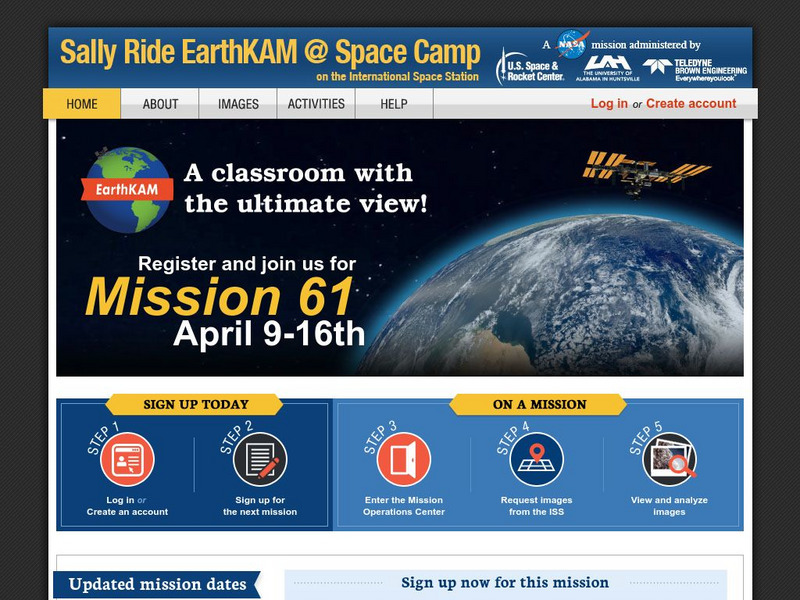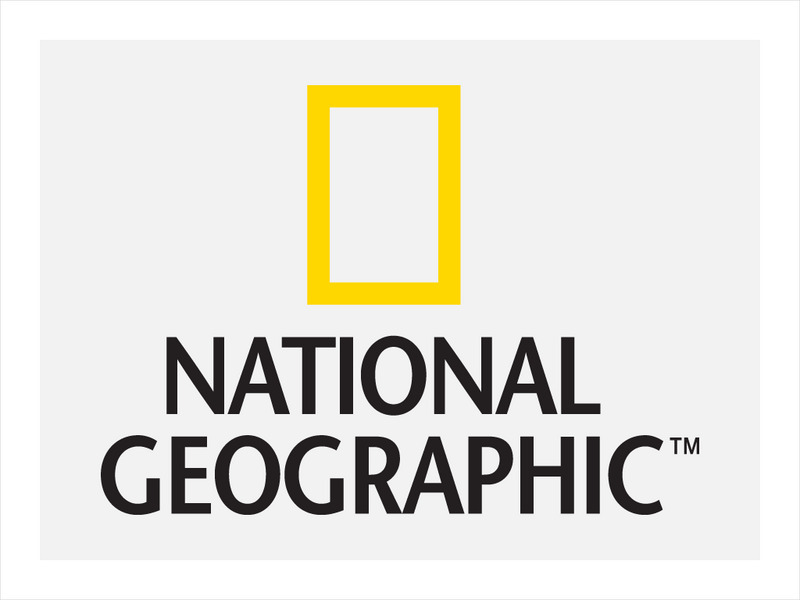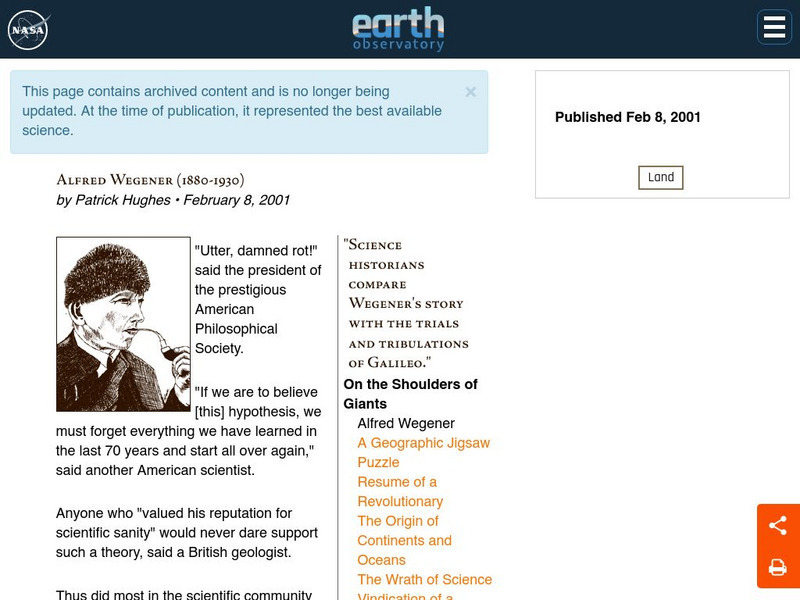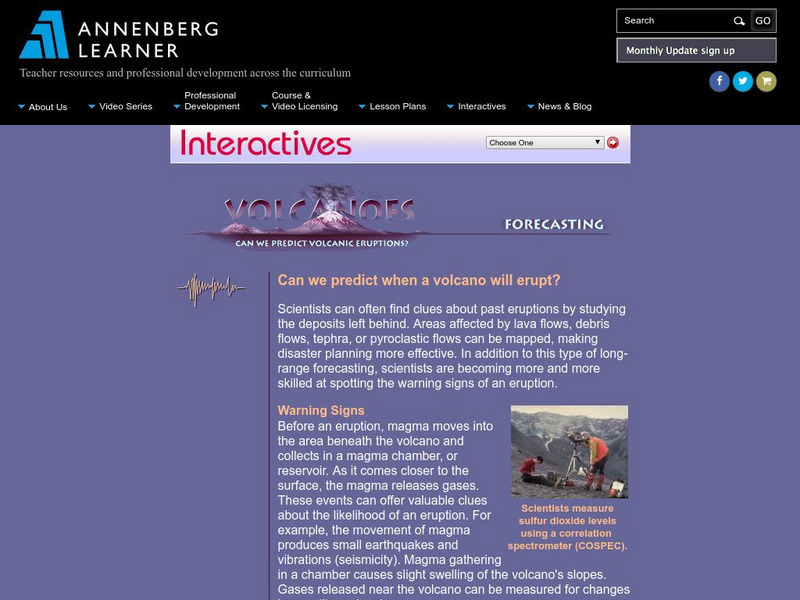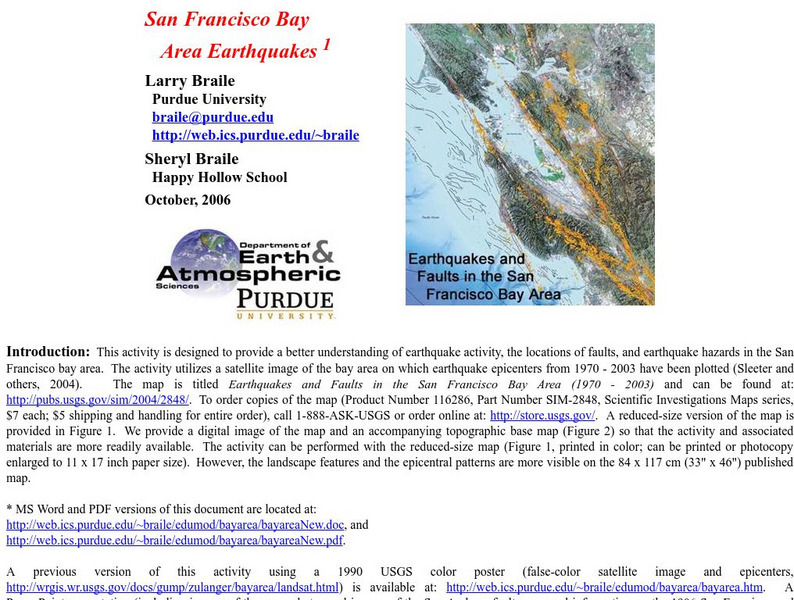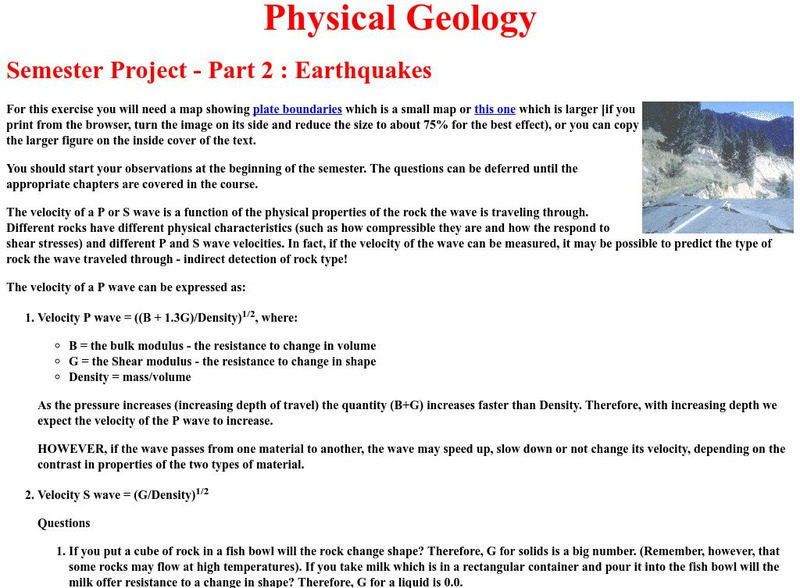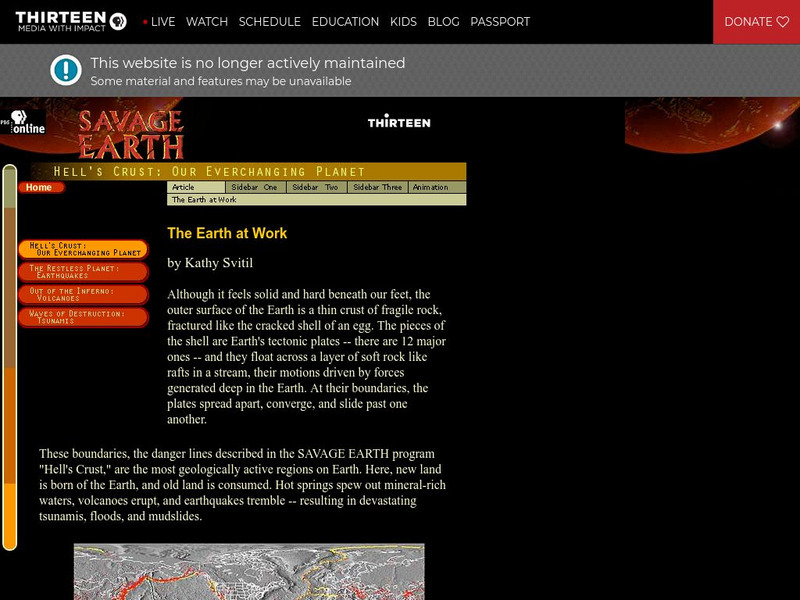Exploratorium
Exploratorium: On the Road With the Faultline Project
This outstanding multimedia website follows the San Andreas fault system up the California coast from San Diego to just north of San Francisco on the coast.
Exploratorium
Exploratorium: Earthquake Faultline Earthquake Activities
This outstanding website provides an excellent variety of hands-on earthquake activities to help you understand what causes earthquakes.
Exploratorium
Exploratorium: Loma Prieta, Bay Area, Earthquake 1989
This outstanding multimedia site documents the earthquake and related events that took place on October 17, 1989 in the San Francisco Bay Area.
Other
Nasa: Iss Earth Kam
Students get a whole new perspective of the world through images obtained from the International Space Station. Students can even request images to be taken through ISS EarthKAM. Activities and educator guides are provided.
National Geographic
National Geographic: Encyclopedia: Mantle
An in-depth look at the structure and composition of Earth's mantle, with lots of visuals. Covers lithosphere, Mohorovicic discontinuity, asthenosphere, transition zone, lower mantle, the d double-prime region, mantle convection, mantle...
NASA
Nasa: Alfred Wegener
An excellent biography of Wegener that includes his breakthrough work and the storm of controversy it created. Finally, Alfred Wegener has gotten the praise and recognition he deserved.
University of California
University of California: Understanding Earthquakes
This website is a resource for learning about earthquakes. Java animation at this site helps you visually understand the causes of earthquakes.
Annenberg Foundation
Annenberg Learner: Volcanoes: Forecasting Eruptions
A look at some of the methods and problems with forecasting volcanic eruptions.
Center for Innovation in Engineering and Science Education, Stevens Institute of Technology
Where Will Your Home Be in a Million Years?
Students will use the global velocities map to predict where their home will be in a million years.
Cosmo Learning
Cosmo Learning: Blue Planet: Introduction to Oceanography
A collection of video lectures from an introduction to oceanography course taught at the University of California, Los Angeles. The course gives a general introduction to the processes and history of Earth's global oceanic system in...
Cosmo Learning
Cosmo Learning: Engineering Geology
A collection of video lectures from a course introducing students to the basics of engineering geology. Webpage includes forty lectures from a professor at the National Programme on Technology Enhanced Learning. Lectures vary in length...
Curated OER
Extreme Science: A Lesson in Plate Tectonics
With its clickable map, this site provides text and graphics on spreading boundary, converging boundary, subduction zone, transverse boundaries and faults.
Science Struck
Science Struck: The Theory of Continental Drift
Explains what is meant by the Theory of Continental Drift, its earliest proponents, the stages of continental drift, the causes related to tectonic plate movement, the evidence that has been found, and how the Himalaya Mountains offer...
CPALMS
Florida State University Cpalms: Florida Students: Mantle Convection and Earth's Features
A resource to help understand that the movement of the Earth's tectonic plates is caused by convection. The plates' movements cause geologic features on the Earth's surface.
Purdue University
Purdue University: San Francisco Bay Area Earthquakes
Students use geologic fault maps of the San Francisco Bay Area to find relationships between tectonic plate fault lines and landscape features, topographic features, and epicenters of past earthquakes.
Read Works
Read Works: Finding Fault
[Free Registration/Login Required] This informational text passage describe different active tectonic plates around the globe. This passage is a stand-alone curricular piece that reinforces essential reading skills and strategies and...
CK-12 Foundation
Ck 12: Plix: Independence vs. Dependence: Geological Stresses
[Free Registration/Login Required] An animation to illustrate the effects that different tectonic stresses have on rocks. Also included on the site is a short quiz over tension and compression.
University of Houston
University of Houston: Earthquakes
This exercise will help students understand the plate boundaries of earthquakes.
American Geosciences Institute
American Geosciences Institute: Earth Science Week: Ring of Fire
Students identify plate boundaries as well as continents, countries, and bodies of water to become familiar with an area known as the "Ring of Fire."
CK-12 Foundation
Ck 12: Earth Science: Intraplate Activity
[Free Registration/Login may be required to access all resource tools.] Covers volcanic activity occurrence within oceanic and continental plates.
CK-12 Foundation
Ck 12: Earth Science: Intraplate Activity
[Free Registration/Login may be required to access all resource tools.] Covers volcanic activity occurrence within oceanic and continental plates.
CK-12 Foundation
Ck 12: Earth Science: Intraplate Earthquakes
[Free Registration/Login may be required to access all resource tools.] How and why intraplate earthquakes occur away from plate boundaries.
Libre Text
Uc Davis Geo Wiki: Mantle Thermal Plumes
The vast majority of earthquakes and volcanic eruptions occur near plate boundaries, but there are some exceptions. Learn here all about mantle thermal plumes.
PBS
Wnet: Thirteen: The Earth at Work
This site from PBS provides a description of the mechanisms behind the plate movements, types of movements, and the resulting earthquakes, faults, and images and animations of several of the topics presented.
Other popular searches
- Plate Tectonics Activities
- Plate Tectonics Pangaea
- Science Plate Tectonics
- Lessons on Plate Tectonics
- Theory of Plate Tectonics
- Plate Tectonics Lab Activity
- Modeling Plate Tectonics
- Evidence for Plate Tectonics
- Plate Tectonics Theory
- Plate Tectonics Word Search
- Plate Tectonics and Tsunamis
- Plate Tectonics Pangaea Map





